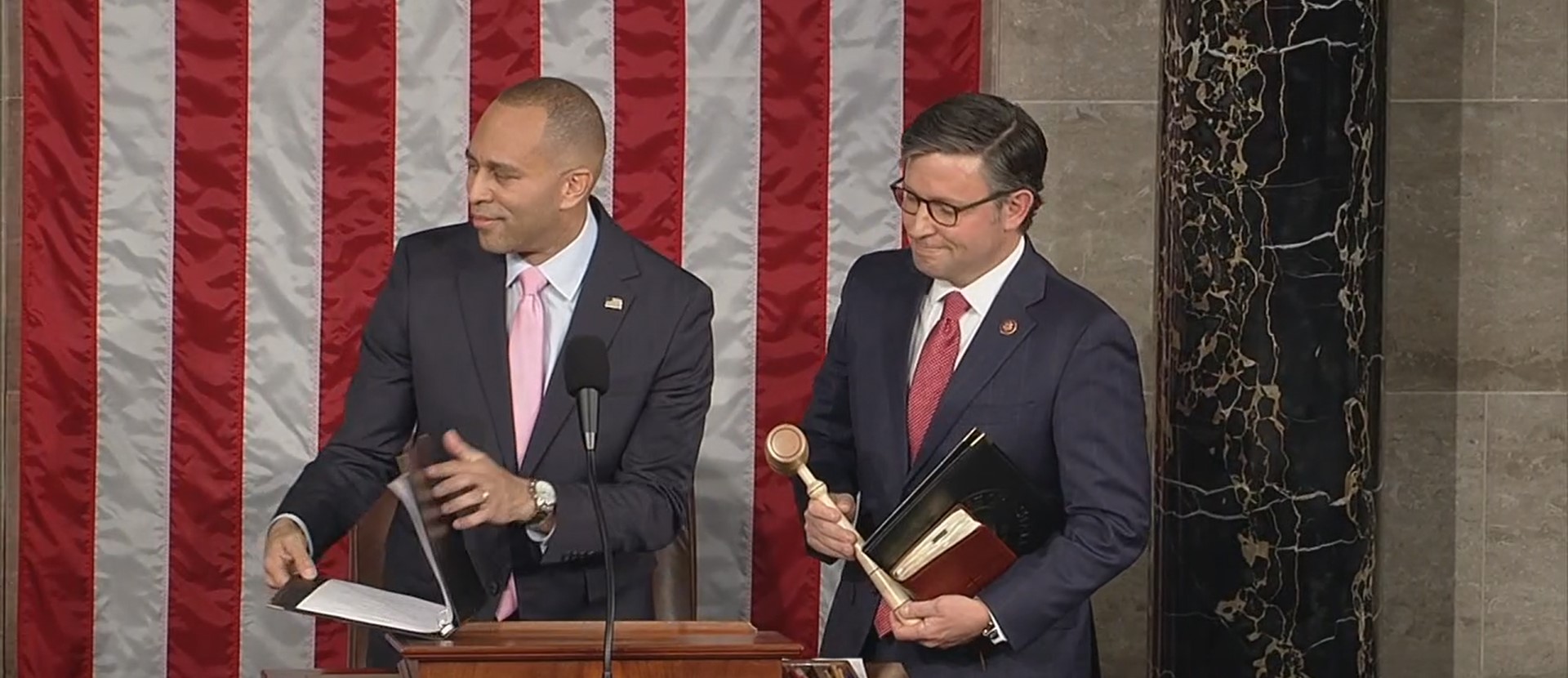Commentary: Big Tent Ideas
J.D. FOSTER: Congress Pours Fuel On The Debt Fire With Phony ‘Emergency’ Spending

(Screen Capture/CSPAN)
Want to spend more with little muss and fuss? Declare the purpose an emergency. That is what Congress does — and did again in the recently adopted continuing resolution (CR). Since 1992 Congress has spent $12 trillion that way, according to the Cato Institute.
Congress will never control spending unless this nonsense stops.
The game goes like this. Congress decides it wants to plus up spending here or throw a few billions there — all outside normal budgeting. But first it needs an excuse. Got it, we’ll call it an emergency.
Episodically there really is an emergency. To qualify as emergency spending, the justification should be a rare event with substantial financial consequences. For example, consider the funding for replacing the Francis Scott Key Bridge in Baltimore, a key link in the eastern I-95 transportation corridor felled by a wayward container ship last March.
Vessels rarely destroy major bridges and the replacement cost will approach $2 billion, which should still be considered a significant sum, even by Washington standards. Thus, funding the Baltimore bridge replacement qualifies as emergency spending by any sensible metric. Further, the federal government will eventually foot the bill. So, the CR appropriately includes this funding.
Compare that with the $100 billion plus in “emergency” funding for regions ravaged by hurricanes Helene and Milton and hit by other storms, plus $10 billion in support for farmers.
The devastations wrought by the hurricanes was enormous, yet Florida and the Gulf coast are regularly hit by hurricanes. This isn’t emergency spending, it is just the 2024 installment in transferring resources to the hurricane-vulnerable hurricane alley from the rest of the country.
This is analogous to the annual bucket of funding to California for dealing with the damage from forest fires.
Why should the rest of the country pony up for common expenses in Florida and California? No reason whatsoever.
If something happens often, then it is not an emergency and doesn’t justify federal funding relief. Here’s an idea — only allow emergency funding for extremely rare events.
That would mean states in hurricane alley need to turn to their own residents to build up a rainy-day fund to deal with the costs when a hurricane hits. States where forest fires are common need to build up their own emergency funds from resources drawn by their own residents. And states where big rivers sometimes flood … you guessed it. In every case, stop asking the rest of the country to subsidize your habitation choices.
Nor can the CR’s funding for farmers be called emergency with a straight face. Many farmers stand on their own two feet, but many parts of American agriculture are in permanent welfare status. In the CR, it’s called the “farm bill,” which Congress extended for another year.
Here’s the deal — don’t pretend you are a conservative if you cash the check. You are a hard-working, truck-driving welfare recipient enjoying the fruits of others’ labors. If you don’t like the sound of that, don’t cash the check.
American businesses large and small play this game. They need to wean themselves from subsidies because when everybody is getting a subsidy, the only ones who truly benefit are the politicians making promises and the bureaucrats processing paper and getting paychecks.
Federal “emergency” spending has averaged about $400 billion a year since 1992 while the resulting deficits caused over 40% of the outstanding $28 trillion in publicly held debt. While the DOGE faces a target-rich environment, drastically curtailing emergency spending should be near the top of the list.
J.D. Foster is the former chief economist at the Office of Management and Budget and former chief economist and senior vice president at the U.S. Chamber of Commerce. He now resides in relative freedom in the hills of Idaho.
The views and opinions expressed in this commentary are those of the author and do not reflect the official position of the Daily Caller News Foundation.
All content created by the Daily Caller News Foundation, an independent and nonpartisan newswire service, is available without charge to any legitimate news publisher that can provide a large audience. All republished articles must include our logo, our reporter’s byline and their DCNF affiliation. For any questions about our guidelines or partnering with us, please contact [email protected].

